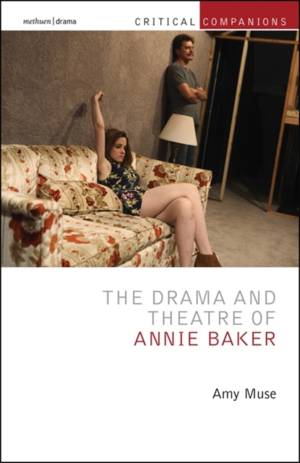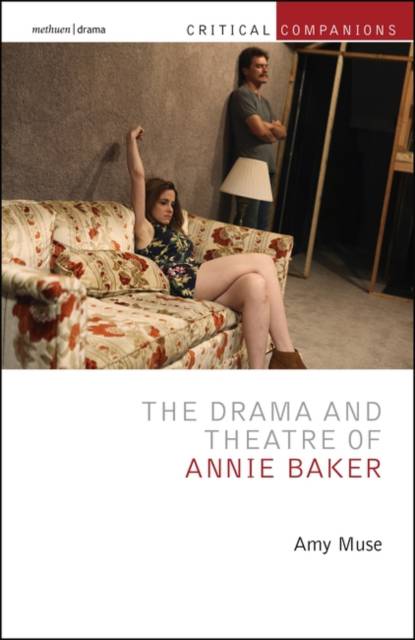
Bedankt voor het vertrouwen het afgelopen jaar! Om jou te bedanken bieden we GRATIS verzending (in België) aan op alles gedurende de hele maand januari.
- Afhalen na 1 uur in een winkel met voorraad
- In januari gratis thuislevering in België
- Ruim aanbod met 7 miljoen producten
Bedankt voor het vertrouwen het afgelopen jaar! Om jou te bedanken bieden we GRATIS verzending (in België) aan op alles gedurende de hele maand januari.
- Afhalen na 1 uur in een winkel met voorraad
- In januari gratis thuislevering in België
- Ruim aanbod met 7 miljoen producten
Zoeken
€ 195,45
+ 390 punten
Omschrijving
In the first book-length study of Annie Baker, one of the most critically acclaimed playwrights in the United States today and winner of the 2014 Pulitzer Prize, a Guggenheim Fellowship, and a MacArthur "genius" grant, Amy Muse analyzes Baker's plays and other work. These include The Flick, John, The Antipodes, the Shirley Vermont plays, and her adaptation of Uncle Vanya.Muse illuminates their intellectual and ethical themes and issues by contextualizing them with the other works of theatre, art, theology, and psychology that Baker read while writing them.
Through close discussions of Baker's work, this book immerses readers in her use of everyday language, her themes of loneliness, desire, empathy, and storytelling, and her innovations with stage time. Enriched by a foreword from Baker's former professor, playwright Mac Wellman, as well as essays by four scholars, Thomas Butler, Jeanmarie Higgins, Katherine Weiss, and Harrison Schmidt, this is a companionable guide for students of American literature and theatre studies, which deepens their knowledge and appreciation of Baker's dramatic invention.
Muse argues that Baker is finely attuned to the language of the everyday: imperfect, halting, marked with unexpressed desires, banalities, and silence. Called "antitheatrical," these plays draw us back to the essence of theatre: space, time, and story, sitting with others in real time, witnessing the dramatic in the ordinary lives of ordinary people. Baker's revolution for the stage has been to slow it down and bring us all into the mystery and pleasure of attention.
Through close discussions of Baker's work, this book immerses readers in her use of everyday language, her themes of loneliness, desire, empathy, and storytelling, and her innovations with stage time. Enriched by a foreword from Baker's former professor, playwright Mac Wellman, as well as essays by four scholars, Thomas Butler, Jeanmarie Higgins, Katherine Weiss, and Harrison Schmidt, this is a companionable guide for students of American literature and theatre studies, which deepens their knowledge and appreciation of Baker's dramatic invention.
Muse argues that Baker is finely attuned to the language of the everyday: imperfect, halting, marked with unexpressed desires, banalities, and silence. Called "antitheatrical," these plays draw us back to the essence of theatre: space, time, and story, sitting with others in real time, witnessing the dramatic in the ordinary lives of ordinary people. Baker's revolution for the stage has been to slow it down and bring us all into the mystery and pleasure of attention.
Specificaties
Betrokkenen
- Auteur(s):
- Uitgeverij:
Inhoud
- Aantal bladzijden:
- 208
- Taal:
- Engels
- Reeks:
Eigenschappen
- Productcode (EAN):
- 9781350319974
- Verschijningsdatum:
- 10/08/2023
- Uitvoering:
- Hardcover
- Formaat:
- Genaaid
- Afmetingen:
- 140 mm x 216 mm
- Gewicht:
- 390 g

Alleen bij Standaard Boekhandel
+ 390 punten op je klantenkaart van Standaard Boekhandel
Beoordelingen
We publiceren alleen reviews die voldoen aan de voorwaarden voor reviews. Bekijk onze voorwaarden voor reviews.









